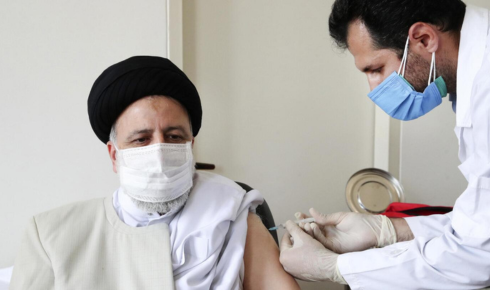
How LimaTeb Is Making Preventive Health Testing More Accessible in Iran
There’s a quiet revolution happening in Iran — and it doesn’t involve politics, protests, or policy. It’s happening in homes, clinics, and mobile apps. It’s reshaping the way people take care of their health, often before they even feel a symptom. At the heart of this shift is LimaTeb, a company that’s made it its mission to make preventive health testing simple, accessible, and — dare we say — human again.
Let’s be real: in most parts of the world, going for a medical test is still a bit of a hassle. You’ve got to book appointments, take time off work, maybe sit in traffic, and then queue at a clinic. In many places, that’s just how it is. But LimaTeb looked at that reality and thought, “What if there’s a better way?”
And it turns out… there is.
The Story Behind the Movement
Before diving into the tech and logistics, it’s worth understanding the why. Preventive health isn’t just a buzzword. It’s a lifeline. Cancers caught early, diabetes managed before it spirals, deficiencies identified before they debilitate — these aren’t miracles. They’re outcomes of timely testing.
But for millions in Iran, consistent access to these tests has been limited — not just because of infrastructure, but also due to awareness, cost, and, honestly, convenience.
That’s where LimaTeb stepped in. The company recognized a gap between the public’s health needs and the healthcare system’s delivery. And rather than waiting for top-down reform, they decided to innovate from the ground up.
The LimaTeb Approach: Practical, Digital, and Personal
At first glance, Limateb.com may seem like just another health services website. But spend a few minutes browsing, and you’ll sense something different. This isn’t some cold, clinical interface; it feels approachable, even friendly.
Here’s what they’re doing differently:
- Home-Based Testing: Instead of requiring people to travel for routine checks, LimaTeb offers testing services right at home. From blood samples to vitamin deficiency panels, much of it can be arranged and completed without stepping outside.
- Clear, Understandable Results: Medical jargon can be overwhelming. LimaTeb simplifies test results and, when needed, connects users with physicians to interpret them in plain language. That alone reduces so much of the anxiety tied to testing.
- Subscription Health Plans: The team didn’t just stop at one-time services. They’ve developed preventive care plans where users get regular tests scheduled throughout the year, depending on their health profile. This is especially helpful for those managing chronic conditions or wanting to stay a step ahead.
- Mobile Integration: Their platform works seamlessly across devices. So whether you’re in Tehran or Tabriz, accessing your health data, booking a test, or consulting a doctor can be done with a few taps.
All of this might sound ordinary if you’re used to Western digital health startups. But in the Iranian context — where tech, medicine, and public access don’t always align smoothly — it’s groundbreaking.
Culture Meets Innovation
One of LimaTeb’s more understated successes is how it’s bridging cultural gaps. In many Iranian families, especially older generations, the idea of booking health tests online or discussing medical results via app might’ve once seemed odd. But LimaTeb has taken the time to earn trust — through user-friendly interfaces, responsive customer service, and a very real understanding of Iranian family dynamics.
They’re not just digitizing healthcare. They’re humanizing it.
Why It Matters (More Than You Think)
Here’s the big picture: Iran, like many countries, is grappling with rising rates of non-communicable diseases — diabetes, heart conditions, cancers. These aren’t spread through viruses; they’re the slow, creeping results of lifestyle, genetics, and — critically — missed warning signs.
And missed signs are, more often than not, missed tests.
By making routine health monitoring more accessible, LimaTeb isn’t just offering convenience. They’re potentially saving lives — quietly, consistently, and at scale.
It’s not flashy. It’s not viral. But it’s deeply important.
The Road Ahead
LimaTeb’s journey is still unfolding. There’s talk of expanding their test catalog, introducing AI-based risk predictions, and building partnerships with hospitals across the country. If they pull this off, Iran could very well become a regional leader in patient-led, tech-enabled preventive health.
But even if those bigger milestones take time, what they’ve already done is remarkable.
They’ve shifted the narrative. In a country where many still wait for symptoms before seeking care, LimaTeb is encouraging people to act sooner, test smarter, and live healthier.
That’s not just a business goal. That’s a public service.
Final Thoughts
Sometimes the most impactful innovations don’t come from massive companies or billion-dollar budgets. They come from teams who deeply understand their communities — their hesitations, their habits, their hopes — and build something real in response.
LimaTeb is one of those rare companies.
And if you’re in Iran, wondering whether it’s worth checking your vitamin D or keeping tabs on your cholesterol — maybe it’s time to stop wondering. A few clicks on limateb.com could be the start of something better.
Not just for your health. But for how you think about it.



